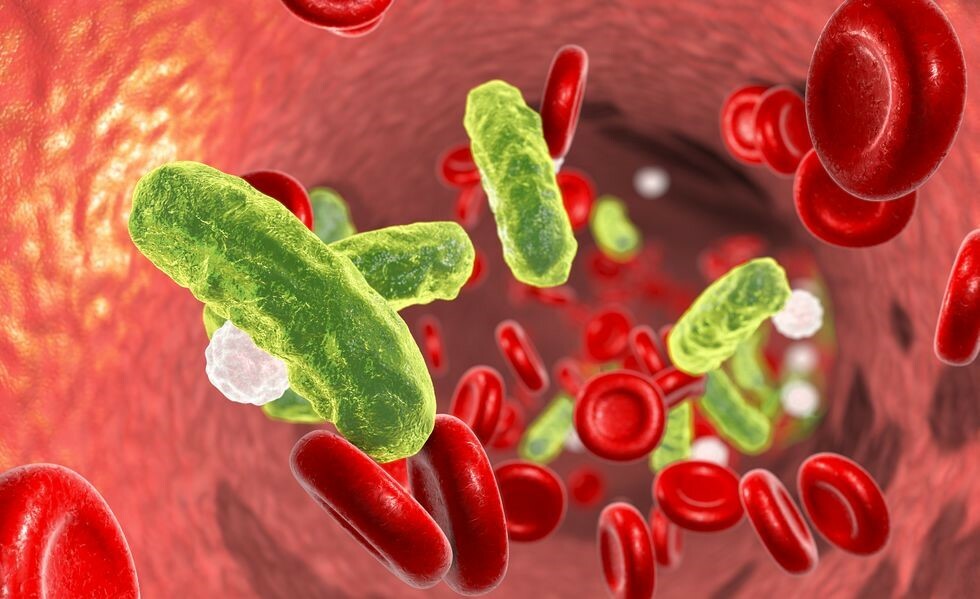All of us, at one time or another, has suffered from an infection. An infection is the invasion of the body’s tissues, most often by bacteria, virus or fungi, that enter the body and multiply, and the body’s reaction to the infectious agents. When your immune system cannot fight off these organisms an infection results and can begin a disease process.
Not all infections are “created equal.” Each individual’s immune system may react differently to the invading bacteria, virus or fungi. Infections may be local, confined to one particular part of the body, causing that area to be red, tender, painful, swollen or warm. Pus may be present at the site and a fever may develop. Generally, a localized infection can be treated at home or by your doctor, but if not promptly and properly cared for, a more serious infection can develop and spread. Some local infections of internal organs, such as of the lung, heart, kidneys and appendix are serious and require immediate medical treatment.
Other infections may be systemic and spread into your blood and tissues causing sepsis or septicemia and septic shock, a life threatening condition requiring emergency treatment. During the body’s infection fighting process, the body’s organs (liver, kidneys, lungs) may function poorly, blood pressure may drop, blood flow to organs such as the brain, heart and kidneys may occur, and blood clotting disorders may develop resulting in ischemia, when parts of your body are not getting enough blood and oxygen, which may result in death of tissue causing loss of life or limb. Sepsis may present with different signs and symptoms including fever, chills, fatigue, weakness, mental status changes, nausea, vomiting, fast heartbeat, rapid breathing, and drop in blood pressure.
Early and proper treatment is critical for improved outcomes and survival. Admission to a hospital’s Intensive Care Unit (ICU) is likely so that the medical team caring for you will treat the infection, keep your organs working and keep your blood pressure stable. Early treatment likely will include testing to look for bacteria in your blood; x-rays or CT Scans looking for signs of infection; blood tests looking at your white blood cell count, platelets, in your blood, levels of electrolytes and enzymes in your blood; whether your blood is clotting normally; blood pressure readings; whether you have too much acid in your blood and enough oxygen in your blood, and whether your kidneys and liver are functioning normally. Treatment with broad spectrum IV antibiotics, intravenous fluids, oxygen, vasopressors to improve blood pressure, steroids to reduce inflammation, and a breathing machine may be required.
Over our many years practice in the field of medical malpractice, we have represented clients who have developed infections, sepsis and septic shock, and who have suffered substantial and tragic consequences from delay in treatment and improper treatment. In one of our cases, the doctors and hospital failed to promptly and properly diagnose and treat a kidney stone which was obstructing the flow of our clients’ urine resulting in a urinary tract infection, sepsis and septic shock and a blood clotting disorder. Unfortunately, she suffered gangrene of the lower extremities bilaterally due to decreased blood flow and was caused to undergo bilateral below the knee amputations. In another similar case an undiagnosed and untimely treated perforation of the intestine caused infection, sepsis and death.
If you are suffering from a serious infection, early diagnosis to prevent worsening of your physical condition and complications thereafter is essential. Hospitalization, close monitoring and treatment with antibiotics, intravenous fluids and other modalities improve outcome and chances for survival.
If you have sustained an injury following and infection and/or sepsis you may be the victim of medical malpractice. Contact Sanocki Newman & Turret, so that we can evaluate your potential medical malpractice lawsuit. You can call us at (212) 962-1190 or email us at info@sntny.com


